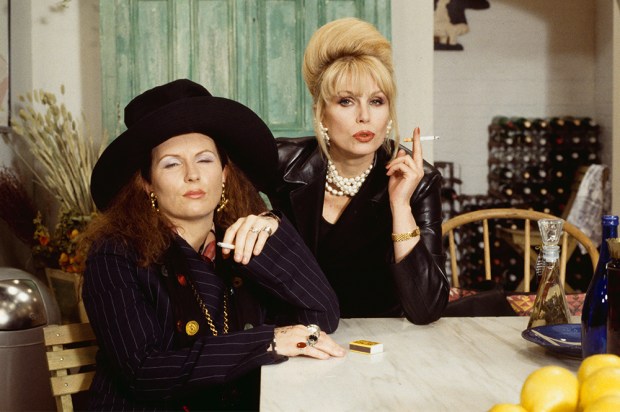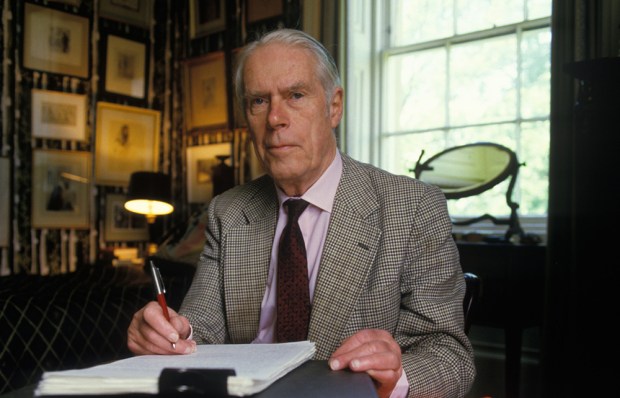To the dentist. And for an extraction. I hadn’t had a tooth out in decades. But the twinges when I bit on a nut warned me that my problem molar — much abused by a badly fitted bridge in the 1970s — had finally given way. My usual dentist confirmed as much with a poke and an X-ray. Then came the surprise. ‘I’m going to hand you over now,’ he said. Having a tooth out has ceased to be a hazard of life to be borne and grinned at. Instead it’s become dental surgery. And it requires a specialist. Mine was a man with a mission. ‘My job is to make sure you feel no pain,’ he said. And he proceeded, with skill, charm and patience, to do just that. The result was that the extraction, rather than the grinding wrench I remembered, was almost an anticlimax. But it wasn’t only the medicine that struck; it was also the efficiency and customer care: my notes (back to the faulty bridge of 1973) were to hand; I was given clear instructions about post-operative care; my specialist even rang me at the end of the working day to check there had been no complications. I was almost profuse in my gratitude.
As I put the phone down, I reflected on the gap — almost unbridgeable — between what I’d experienced and the school dentist (a kindly old soul, despite his terrifying equipment) of my childhood. Dentistry was, of course, like all other forms of medical care, part of the original NHS. But it escaped relatively quickly. Would the extraordinary progress I’d just experienced have been possible if it hadn’t? At any rate, it proves that the privatisation of an important part of healthcare isn’t the end of the world as we know it. Why, in all the endless debates about the NHS, don’t the Tories trumpet the triumphs of privatised dentistry?
But of course popular attitudes are just as important. Thanks to endless handsome, toothsome celebrities, people will pay for dentistry because they see it not as a question of health, for which they will shell out grudgingly if at all, but as one of cosmetics. Impossibly white, impossibly regular teeth have become a sign of beauty. And there is no limit to what people will pay to make themselves beautiful. Quite the opposite, in fact: as the price of perfumes, colognes and assorted snake-oil unguents demonstrates, when beauty’s at stake the rule is the more expensive the better. So now it is with teeth.
Here surely there is a lesson for our health policy, however it is funded and organised. We have got nowhere by presenting lifestyle diseases of obesity and so on as a health crisis. Health is a necessity; boring and, thanks to the NHS, someone else’s responsibility. But make it a question of beauty; work with the grain of celebrity culture and not against it; enlist people’s vanity and not their reason, and doctor’s surgeries might become as well run as my dentist’s, and the nation’s waistline will be in as good nick as its teeth.
Which brings us, rather circuitously, to the general election campaign. Of all our current politicians, only Boris would understand and perhaps even approve the idea of enlisting vanity and vice in the campaign to make us healthier. Miliband in particular would hate it. Miliband, like all the bien-pensantleft, is a politician of virtue. He is confident of his own and he is determined to make the rest of us better. He has only to see a sow’s ear and a silk purse springs into his mind. And why stop at one? Set up a board to sponsor this vital manufactory. Subsidise it. Make it compulsory. Get the EU to regulate it. Miliband’s belief in virtue is why he is so uncomfortable with capitalism and understands it so badly. For capitalism is built on human vices. Not the big ones, of course. But the little everyday ones, like vanity and lust and gluttony. The fact has been obscured by do-gooding industrialists like the Quaker Joseph Rowntree. But Rowntree’s fortune was made by persuading the nation to glut itself on oversweetened chocolate, for heaven’s sake.
Still worse has been the respect paid to Adam Smith’s dreary, moralising and sententious Wealth of Nations. Much more bracing, and much truer, is Mandeville’s Fable of the Bees. Unlike Smith, Mandeville understood human nature with all its faults and foibles. And he grounded his economics on what is, not on what ought to be. The result is a coruscating comparison between Vice and Virtue: a society based on Virtue, he shows, is poor (listen to the Greens if you don’t believe me); one based on Vice becomes rich. Mandeville’s work is the perfect remedy for the Smithian view of economics as the dismal science; it might even make a Miliband victory bearable, since it suggests that, like all other attempts to go against human nature and make silk purses out of sow’s ears, it will fail — probably quickly and certainly ignominiously.

Got something to add? Join the discussion and comment below.
Get 10 issues for just $10
Subscribe to The Spectator Australia today for the next 10 magazine issues, plus full online access, for just $10.
David Starkey’s Magna Carta will be published next week.
You might disagree with half of it, but you’ll enjoy reading all of it. Try your first month for free, then just $2 a week for the remainder of your first year.














Comments
Don't miss out
Join the conversation with other Spectator Australia readers. Subscribe to leave a comment.
SUBSCRIBEAlready a subscriber? Log in